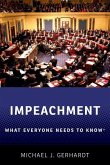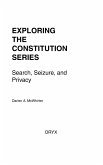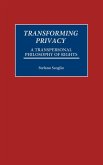We live more and more of our lives online; we rely on the internet as we work, correspond with friends and loved ones, and go through a multitude of mundane activities like paying bills, streaming videos, reading the news, and listening to music. Without thinking twice, we operate with the understanding that the data that traces these activities will not be abused now or in the future. There is an abstract idea of privacy that we invoke, and, concrete rules about our privacy that we can point to if we are pressed. Nonetheless, too often we are uneasily reminded that our privacy is not invulnerable-the data tracks we leave through our health information, the internet and social media, financial and credit information, personal relationships, and public lives make us continuously prey to identity theft, hacking, and even government surveillance. A great deal is at stake for individuals, groups, and societies if privacy is misunderstood, misdirected, or misused. Popular understanding of privacy doesn't match the heat the concept generates. With a host of cultural differences as to how privacy is understood globally and in different religions, and with ceaseless technological advancements, it is an increasingly complex topic. In this clear and accessible book, Leslie and John G. Francis guide us to an understanding of what privacy can mean and why it is so important. Drawing upon their extensive joint expertise in law, philosophy, political science, regulatory policy, and bioethics, they parse the consequences of the forfeiture, however great or small, of one's privacy.
Hinweis: Dieser Artikel kann nur an eine deutsche Lieferadresse ausgeliefert werden.
Hinweis: Dieser Artikel kann nur an eine deutsche Lieferadresse ausgeliefert werden.








